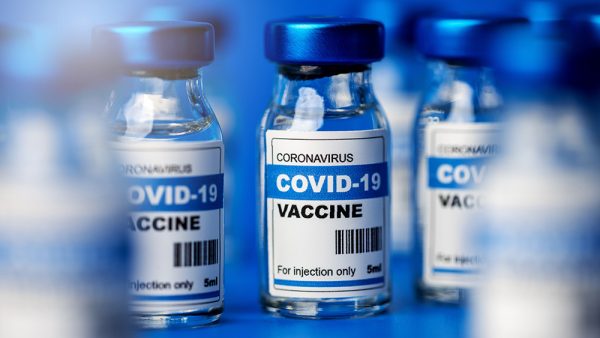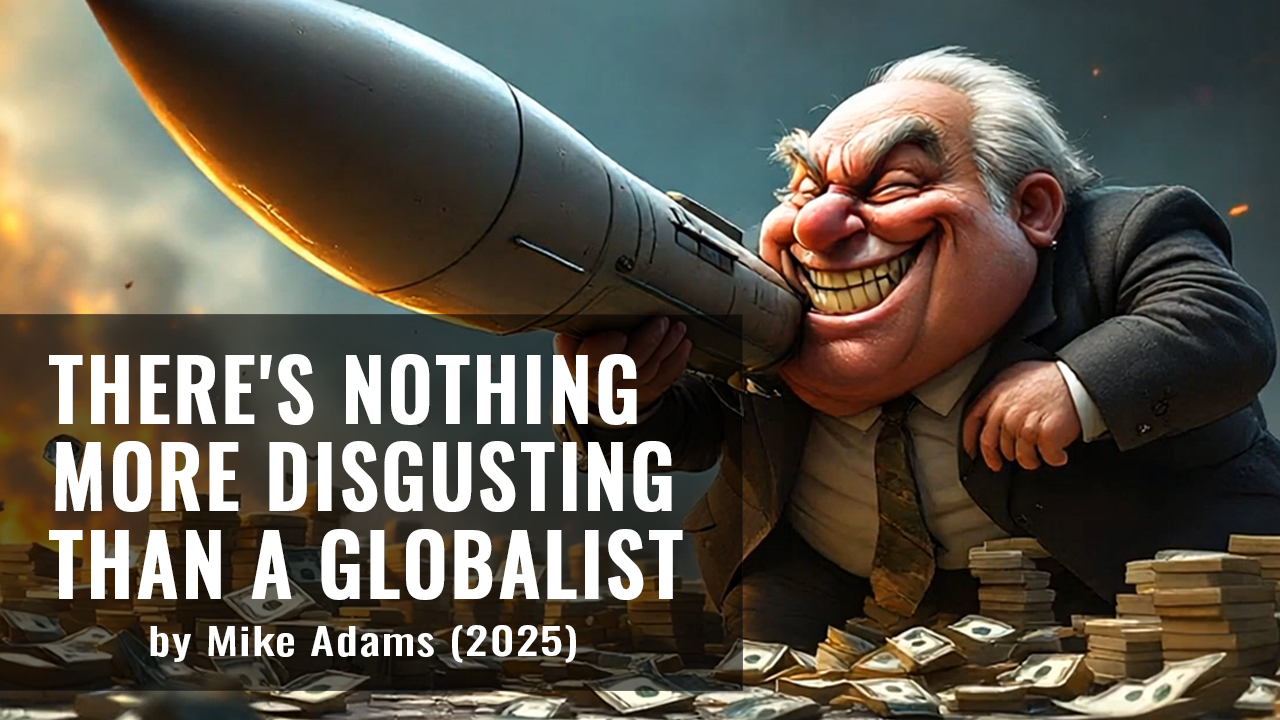 Parler
Parler Gab
Gab
- Louisiana's Surgeon General Ralph Abraham announced the state will no longer promote mass vaccination campaigns, aligning with health freedom advocates and challenging pharmaceutical industry influence.
- President Donald Trump signed an executive order stripping federal funding from schools and universities that mandate COVID-19 vaccines, fulfilling a campaign promise and reflecting a broader pushback against medical overreach.
- The move by Louisiana and the executive order represent a growing skepticism of "one-size-fits-all" medicine and prioritize individual rights over collective health measures.
- The debate over vaccine mandates has deep historical roots in the tension between public health and individual liberty, with the current COVID-19 pandemic intensifying this conflict.
- The actions of Louisiana and the Trump administration signal a potential shift in the balance between public health policies and personal medical autonomy, potentially influencing other states and fueling further debate.
Louisiana’s stand against “one-size-fits-all” medicine
In a memo released by the Louisiana Department of Health, Abraham declared that the state “will no longer promote mass vaccination.” In a separate letter, he elaborated on the reasoning behind this decision, stating, “Promotion of specific pharmaceutical products rises to a different level, especially when the manufacturer is exempt from liability for harms caused by the drug, as is the case for many vaccines.” Abraham criticized the “one-size-fits-all, collectivist mentality” of public health campaigns, arguing that they prioritize maximal compliance over individual rights. “Under this ideology, the sacrifice of a few is acceptable and necessary for the ‘greater good,’” he wrote. “As Americans, we should recognize that our rights come to us as individuals. We should reject this utilitarian approach and restore medical decision-making to its proper place: between doctors and patients.” This announcement aligns with the broader conservative ethos of personal liberty and skepticism of government overreach. It also reflects a growing distrust of pharmaceutical companies, particularly in light of their liability protections under federal law. Louisiana’s decision to step back from mass vaccination campaigns could set a precedent for other states, especially those with Republican leadership, to follow suit.Trump’s executive order: A blow to vaccine mandates
President Trump’s executive order, signed on February 14, 2025, takes direct aim at schools and universities that require COVID-19 vaccines. The order directs the Department of Education and Health and Human Services to identify and withhold federal funding from institutions that enforce such mandates. “Given the incredibly low risk of serious COVID-19 illness for children and young adults, threatening to shut them out of an education is an intolerable infringement on personal freedom,” the order states. While the order applies only to COVID-19 vaccines and does not affect other vaccine mandates, it represents a significant step toward curbing the power of public health authorities to impose medical requirements on individuals. The move fulfills a campaign promise Trump made during his 2024 run, in which he vowed to “not give one penny to any school that has a vaccine mandate.” Critics, including Democratic Senator Patty Murray, have condemned the order as “unconscionable and unethical.” However, supporters argue that it upholds the principle of informed consent and protects individual freedoms from government overreach.A divided nation: The battle over vaccine mandates
While Louisiana and the Trump administration are making strides toward health freedom, the fight is far from over. States like California, New York and Connecticut remain steadfast in their support for vaccine mandates, with some even moving to eliminate religious exemptions. Hawaii, for example, recently advanced a bill to remove religious exemptions for school vaccinations, a move that has been criticized as an outlier but could signal a broader trend. As one health freedom advocate noted, “Big Pharma is not going to roll over and stand idly by as they watch their profits be decimated by a nationwide push to end vaccination mandates.” Indeed, pharmaceutical lobbyists are working overtime in states like Illinois, Massachusetts and New Jersey to push for stricter vaccine laws. These states, along with California and New York, represent significant battlegrounds in the ongoing war over medical autonomy. The stakes are high. For conservatives and natural health advocates, the fight is about more than just vaccines—it’s about reclaiming individual rights and resisting the encroachment of government and corporate interests into personal medical decisions. As Louisiana takes a stand and Trump’s executive order takes effect, the question remains: Will other states follow, or will the nation remain divided on this critical issue?Historical context: A legacy of medical freedom
The current debate over vaccine mandates is not new. Throughout American history, the tension between public health and individual liberty has been a recurring theme. From the smallpox epidemics of the 18th century to the polio outbreaks of the 20th century, the government has often sought to balance the need for disease control with respect for personal freedoms. However, the COVID-19 pandemic brought this tension to the forefront like never before. The rapid development of vaccines under Operation Warp Speed was hailed as a scientific triumph, but the subsequent push for mandates sparked widespread resistance. For many, the mandates represented an unprecedented expansion of government power and a violation of personal autonomy. Louisiana’s decision to end mass vaccination campaigns and Trump’s executive order on school mandates are part of a broader effort to roll back this expansion and restore the balance between public health and individual rights. As the nation grapples with these issues, the actions of Louisiana and the Trump administration may well be remembered as pivotal moments in the ongoing struggle for medical freedom. In the words of one advocate, “We’ve never believed that we can leave it to federal officials to solve all of our problems.” As the battle rages on, it’s clear that the fight for health freedom will continue—not just in the halls of government, but in courtrooms, state legislatures and communities across the country. Sources include: WeThePatriotsSubstack.com NYPost.com APNews.comRFK Jr.’s appointment as HHS secretary: A call to uncover America’s health crises
By Kevin Hughes // Share
Mike Adams releases music poetry sensation: A Child of God
By Mike Adams // Share
Mike Adams releases new song and music video: Nothing More Disgusting Than a Globalist
By Mike Adams // Share
I Want My Bailout Money – new song and music video released by Mike Adams
By Mike Adams // Share
Governments continue to obscure COVID-19 vaccine data amid rising concerns over excess deaths
By patricklewis // Share
Tech giant Microsoft backs EXTINCTION with its support of carbon capture programs
By ramontomeydw // Share
Germany to resume arms exports to Israel despite repeated ceasefire violations
By isabelle // Share










